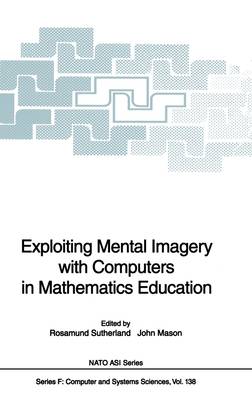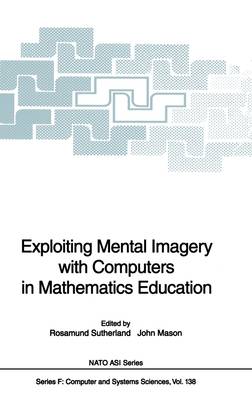
Bedankt voor het vertrouwen het afgelopen jaar! Om jou te bedanken bieden we GRATIS verzending (in België) aan op alles gedurende de hele maand januari.
- Afhalen na 1 uur in een winkel met voorraad
- In januari gratis thuislevering in België
- Ruim aanbod met 7 miljoen producten
Bedankt voor het vertrouwen het afgelopen jaar! Om jou te bedanken bieden we GRATIS verzending (in België) aan op alles gedurende de hele maand januari.
- Afhalen na 1 uur in een winkel met voorraad
- In januari gratis thuislevering in België
- Ruim aanbod met 7 miljoen producten
Zoeken
Exploiting Mental Imagery with Computers in Mathematics Education
Proceedings of the NATO Advanced Research Workshop on Exploiting Mental Imagery with Computers in Mathematics Education, Held at Eynsham Hall, Oxford, May 20-25, 1993
€ 151,45
+ 302 punten
Omschrijving
1. Emphasizing the External.- Imagery for diagrams.- External representations in arithmetic problem solving.- Visualisation in mathematics and graphical mediators: an experience with 11-12 year old pupils.- Visual organisers for formal mathematics.- Mediating mathematical action.- Mathematical objects, representations, and imagery.- 2. Imagery in Support of Geometry.- Images and concepts in geometrical reasoning.- Between drawing and figure.- The functions of visualisation in learning geometry.- Geometrical pictures: kinds of representation and specific processings.- 3. Linking Screen and Mental Imagery.- Overcoming physicality and the external present: cybernetic manipulatives.- On visual and symbolic representations.- The dark side of the Moon.- Ruminations about dynamic imagery (and a strong plea for research).- On designing screen images to generate mental images.- Learning as embodied action.- 4. Employing Imagery.- The importance of mental perception when creating research pictures.- Random images on mental images.- Imagery as a tool to assist the teaching of algebra.- Mathematical screen metaphors.- Exploiting mental imaging: reflections of an artist on a mathematical excursion.
Specificaties
Betrokkenen
- Uitgeverij:
Inhoud
- Aantal bladzijden:
- 344
- Taal:
- Engels
- Reeks:
- Reeksnummer:
- nr. 138
Eigenschappen
- Productcode (EAN):
- 9783540585824
- Verschijningsdatum:
- 18/07/1995
- Uitvoering:
- Hardcover
- Formaat:
- Genaaid
- Afmetingen:
- 156 mm x 234 mm
- Gewicht:
- 657 g

Alleen bij Standaard Boekhandel
+ 302 punten op je klantenkaart van Standaard Boekhandel
Beoordelingen
We publiceren alleen reviews die voldoen aan de voorwaarden voor reviews. Bekijk onze voorwaarden voor reviews.








